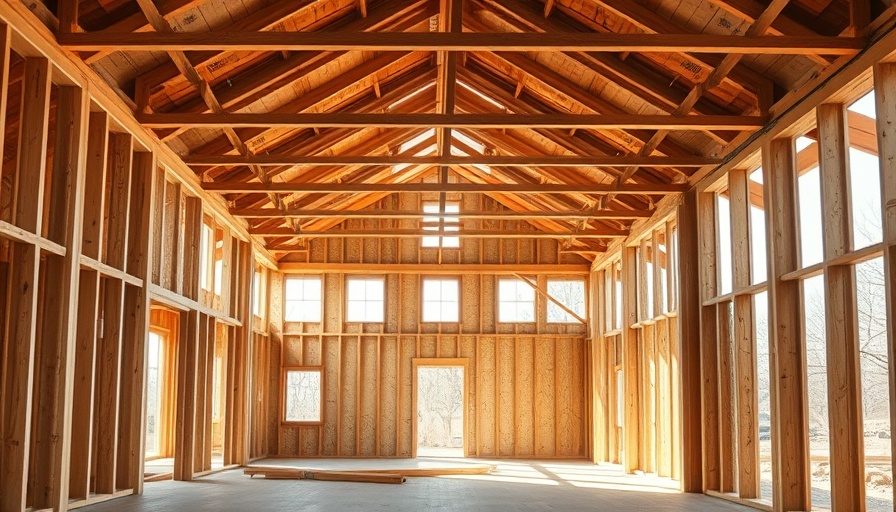
The Shifting Landscape of Home Listings
As we navigate through 2025, the U.S. housing market has not only shown signs of recovery from the dismal two-year period that severely affected home listings, but it also presents an intriguing question: Are home sellers pulling back again? With seasonal peaks typically between 80,000 and 110,000 new listings each week, the recent stagnation at around 80,000 raises concerns about sustainability and long-term market health.
Historical Context: Where We’ve Been
Historically, the housing market went through rigorous fluctuations, particularly during the bubble crash years when new listings soared up to 400,000 weekly. The last two years marked an unprecedented low, with many buyers hesitant to list their homes due to economic uncertainty and climbing mortgage rates. In stark contrast, 2024 experienced green shoots, including inventory growth that offers greater diversity for potential buyers.
Current Trends: Analyzing the Data
New listings recently hit a peak nearing 80,000 during the seasonal spring rush, but the latest data points to a tepid increase compared to expectations. For instance, last week reported 73,433 new listings, only slightly better than the same week last year. This particularly cautious approach from sellers could be indicative of a larger trend affecting the confidence levels in the market.
Potential Influencing Factors
What could be causing sellers to hesitate? A significant factor appears to be rising mortgage rates that can dampen buyer enthusiasm. According to recent reports, the average rate for a 30-year fixed mortgage remains high at 6.99%, forcing many buyers to reconsider their purchasing power. Thus, sellers may think twice about listing their properties, fearing that buyers won't meet their expectations.
Future Insights: What Lies Ahead?
Prospective trends suggest that unless we see an economic pivot or tangible improvements in interest rates, home sellers may continue to shy away from the listing process. This could curtail participation in what should be a rejuvenated market. Real estate agents must prepare for varying scenarios, whether it's increasing supply or adjusting expectations based on prevailing market conditions.
Final Thoughts: Engage and Adapt
In an ever-evolving market, real estate agents must maintain vigilance and agility. As inventory grows and competition remains fierce, understanding these shifts will empower agents to better serve their clients, ensuring that they can navigate potential obstacles adeptly.
In summary, while we are witnessing some encouraging sales numbers, the hesitance among sellers could indicate broader issues that need addressing. Agents should proactively monitor listings, engage their clients with informed strategies, and remain adaptable to any sudden market changes.
 Add Row
Add Row  Add
Add 




Write A Comment